News & Events
Workshop on New Teaching Methodologies
Date : 2024-05-16
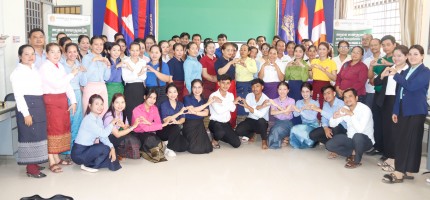
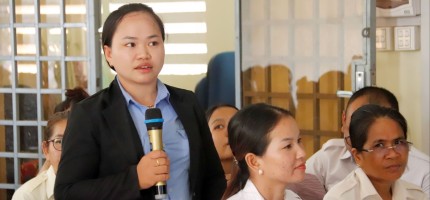
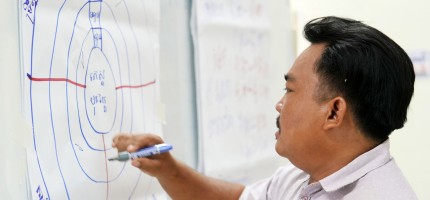
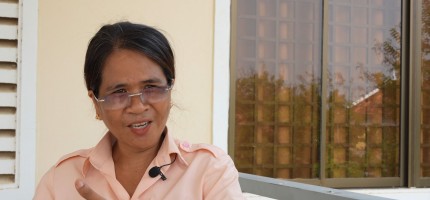
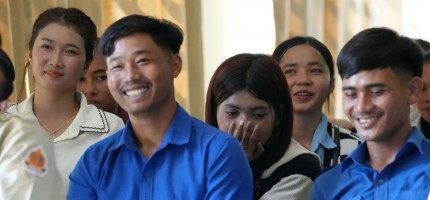
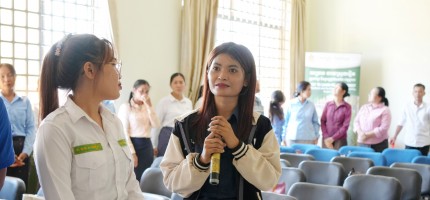
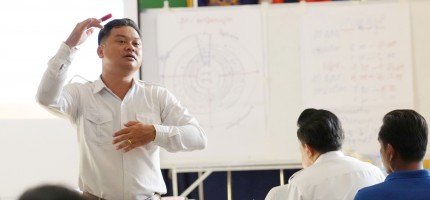
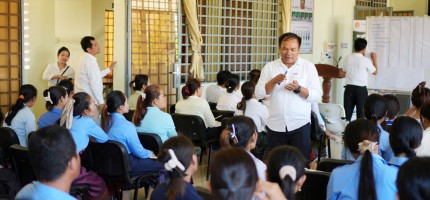
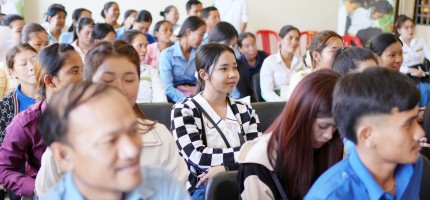
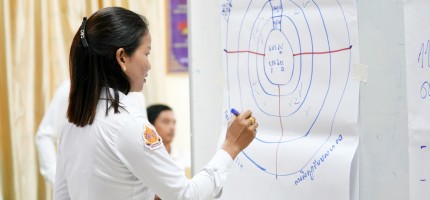
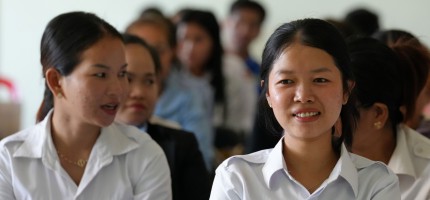
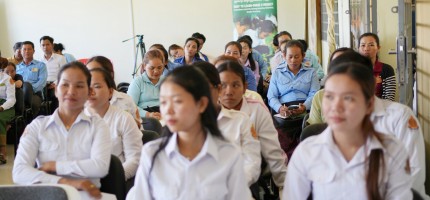
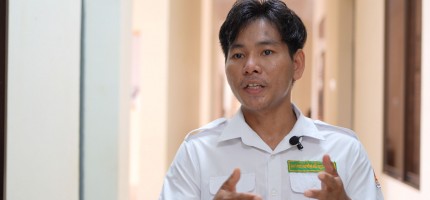
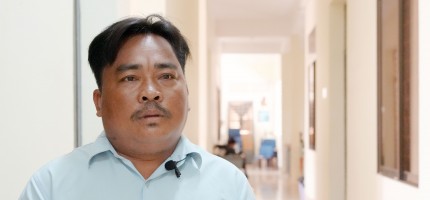
KRATIE on 10-11 May 2024: The Easy To Learn (E2L) project with financial support from ChildFund Korea through ChildFund Cambodia, implemented by KAPE, hosted its two-day third teacher workshop on new teaching methodologies of year 3 at Hun Sen Sopheak Burak in Sambou district, Kratie province. The workshop was aiming to provide the participants as follows: (1) The trainees, who were the Grade 1 to 6 teachers at the 7 target primary schools and 2 annexed schools, strengthened their capacity for teaching and learning. (2) Participants received new methods to respond to principles of the student center. (3) Participants understood the development of biased and non-biased questions. (4) Participants understood how to create question levels based on Bloom Taxonomy and (5) participants understood how to help students systematically.
“I am very interested in the workshop organized by KAPE with ChildFund Cambodia on teaching methodologies, including the ways to write a teaching action plan, how to use question levels biased class according to Bloom Taxonomy theory. The new things I learn from the workshop are the teaching method of the student-centre, cooperative learning, inquiry-based lesson, etc. I will use these methods to teach students at my school,” said Mrs. Phan Phanna, the Grade 1 teacher from Svay Chek primary school whilst attending the workshop.
The E2L project has improved quality of primary education for all children in Sambour district and extended to Ou Kreang Sen Chey district. The Easy2Learn project first stared as a pilot program in 2015 in Svay Rieng province and have experienced multiple extensions to other provinces. E2L uses an integrated project design resulting in a multi-dimensional approach to development. At the request of ChildFund, KAPE is now providing technical support for a new iteration of E2L in Kratie province that has started since 2021.
“After the project has cooperated with the target schools and the Primary Office of the Provincial Office of Education, Youth and Sport of Kratie, I have found out that those schools develop a lot such as infrastructural and teaching methodological improvements, especially the technical training related to the lesson plan using Bloom Taxonomic theory, which consists of six levels for teachers to apply in their schools. To succeed educational work performances, we must do it from our hearts with good will to truly value children and ourselves,” Mr. Leng Soknea, the official of Primary Office of Education of the Provincial Office of Education, Youth and Sport of Kratie during the 15-minute workshop break.
In the third point of the four key project activities is the general capacity building that is one of the key activities the project has provided training on ICT in education and technical support to teachers, school directors and relevant staff to use ICT in the learning process. The project provided training teachers and school managers in ways to promote early grade literacy and numeracy and strengthened the system within the school to address learning loss. Significantly, the formative (e.g., interval tests) and summative assessments regularly are pointing out the teaching and learning progress.
“I contribute my expressing opinions in the workshop. And I have learned more things related to the evolution of children including physical, mental and intellectual changes. The variation of children from 1 year to 4 years, from 4 years to 6 years and from 6 years to 11 years, especially while starting to teach children, how we should use words to equal letters and numbers. For example, the letter "m" is that we let the child find the "m" for three times. That means the child knows both the letter and the numerical value of the letter. Another point is the use of words in writing a lesson plan such as fitness, life skills, fitness and behavior. In these three points, they are divided into three main points,” Mr. Ngin Borey, teacher in Charge of Student Councils and Secretary of Rolous Primary School director while participating in this workshop, also shared his personal opinion.
The results of this third two-day workshop provided new teaching methods such as lesson plan preparation, using theory of Bloom Taxonomy, inquiry-based learning, and cooperative learning. The most important thing for Grade 1-3 teachers is to teach children to know their own name, know family members, know night and day, know fire, know what to eat, know how to use their spoon by themselves, know how to dress by themselves, know how to count to 100, know how to salute, can count number 0 to 10, can read the alphabets, can write some letters, can write some sentences, can read some stories and can count to 10 episodes.
“After the E2L project came to my school, my teachers and I have attended capacity buildings, especially this two-day workshop on new teaching methodologies. My staff have a clear understanding of how to use questions on students, how to make teaching and learning aids, ways to attract parents and guardians, to set up classroom committees. As for the academic results of my students in this year, they get Grade A and Grade B more than the past year. This is because my staff create new techniques to make students easy to learn and memorize, set up one hour for learning in the library and the other hours. The students could enter the library freely. My staff can disseminate school activities and announce parents to borrow books and tablets from the library to teach children more at home. I request more training courses on teaching methods and school leadership. I would like to request the Ministry of Education, Youth and Sport to provide assisting textbooks for Grade 1-2. I have already worked with the students' parents with this matter, but they complain about spending on buying books and contribute further to develop school," said Mrs. Phea Kunthy, Director of Sandan 1 primary school.
The E2L project is funded by ChildFund Korea through ChildFund Cambodia and implemented by KAPE. The project plans to hold joint workshops once a year to reflect on the effectiveness of teachers' teaching work and the school directors’ leadership to find out solutions to solve happened problems and set directions for future implementations. This workshop hosting really achieves main goal of the project is to improve quality of primary education for all children in Sambour district and extend to Ou Kreang Sen Chey district as well.
Link to other Website
International NGOs
Local NGOs
Media
Ministries of Royal Government of Cambodia
- Ministry of Education, Youth and Sport (MoEYS)
- Ministry of Health (MoH)
- Ministry of Economy and Finance (MoEF)
- Ministry of Interior (MoI)
Other links
117
Preschool(s)
178
Primary Schools
207
High Schools
2
Higher Education Institutions
163,072
Students
4,487
Teachers/Directors
5,362
Stakeholders


